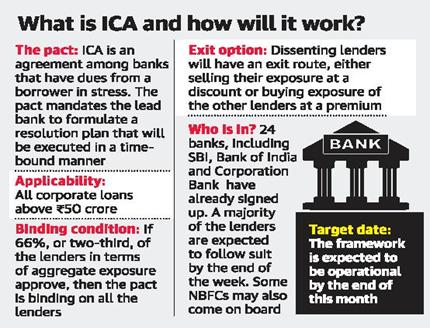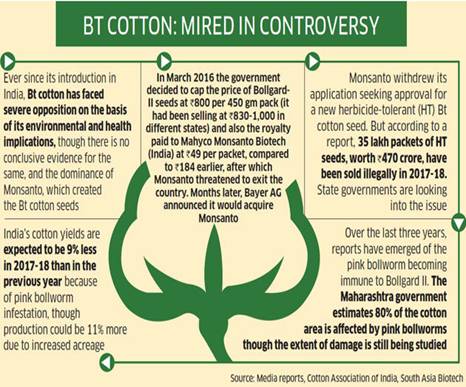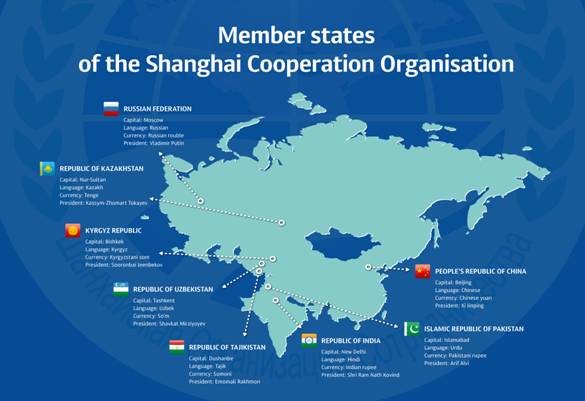- The sowing of Bt cotton seeds was banned in Maharashtra in 2012. The ban was lifted, momentarily, in 2013.
- The use of Btbrinjal for cultivation has been prohibited since 2010.
|
Concern:
GM crops are harmful to:
- The environment
- Biodiversity
- To the human body if consumed
- The use of GM crops breaching a commitment to international biosafety conventions such as the Cartagena Protocol.
|
The Cartagena Protocol on Biosafety
The Cartagena Protocol on Biosafety to the Convention on Biological Diversity is an international agreement which aims to ensure the safe handling, transport and use of living modified organisms (LMOs) resulting from modern biotechnology that may have adverse effects on biological diversity, taking also into account risks to human health.
- It was adopted in 2000 as a supplementary agreement to the Convention on Biological Diversity and entered into force in 2003.
- It is commonly known as “Biodiversity Convention“.
|
Way Forward:
- The central government need to formulate policy that is sustainable and pro environment.
- The concern of Farmer community also needs to address in a holistic manner to maintain their livelihood.
Source Link:https://www.thehindu.com/news/national/ryots-sow-seeds-of-defiance/article27766452.ece
PM Modi to meet Chinese President Xi Jinping, Russian President Vladimir Putin at SCO
Topic Important for: General Studies- 2 I Bilateral, regional and global groupings and agreements involving India
Context:
The prime minister of India will attend the 19th summit of the Shanghai Cooperation Organisation (SCO).
About:
- The 19th summit of the Shanghai Cooperation Organisation (SCO) will be held at the Kyrgyz capital, Bishkek on June 13-14.
- India has not confirmed any bilateral meeting with Pakistan on the sidelines of the SCO Summit.
- Prime Minister Narendra Modi will meet Russian President Vladimir Putin and Chinese President Xi Jinping on the sidelines of the summit.
|
Shanghai Cooperation Organisation (SCO)
- The Shanghai Cooperation Organisation (SCO) is a permanent intergovernmental international organisation.
- The Shanghai Cooperation Organisation Charter was signed during the St.Petersburg SCO Heads of State meeting in June 2002, and entered into force on 19 September 2003.
Objectives of the SCO:
- The organization aims to promote effective cooperation in -politics, trade & economy, research & technology and culture.
- Strengthening mutual trust and neighbourliness among the member states.
- Enhancing ties in education, energy, transport, tourism, environmental protection, etc.
Maintain and ensure peace, security and stability in the region.
- Establishment of a democratic, fair and rational new international political & economic order.
|
Importance for India:
- The summit at SCO will act as the right forum for India to raise the issue of thePulwama terror attack.
- India was satisfied with the participation in the Regional Anti-Terror Structure (RATS).
- India has been participating in tactical drills and counter-terror cooperation with other SCO member countries under the RATS.
- India’s membership of SCO can help in achieving regional integration; promote connectivity and stability across borders Security.
Challenges for SCO:
- The issue of combating terrorism, extremism and separatism, drug and weapons trafficking.
- Apart from being geographically close member countries the grounded and basic issue still remains unsettled.
- National interests and form of government, wealth and culture makes the SCO decision making challenging.
Source Link: https://www.thehindu.com/news/national/modi-to-meet-xi-putin-at-sco/article27766641.ece
MoSPI proposes to use big data analytical tools to improve official statistics
Topic Important for: General Studies- 2 I Important aspects of governance
Context:
The Ministry of Statistics and Programme Implementation (MoSPI) has proposes to set up a 'National Data Warehouse'.
About:
- The Ministry of Statistics and Programme Implementation is formulating a legislative framework under which the National Statistical Commission (NSC) may function with independence.
- The National Statistical Commission (NSC) will also provide holistic guidance for improving the national statistical system of the country.
- The Big Data Analytical tools will help improving the quality of macro-economic aggregates and data.
- The ministry has raised the concern over the statistical reforms are concerned.
|
Note: Recently, The Ministry of Statistics and Programme Implementation approved merging of the Central Statistics Office (CSO) and National Sample Survey Office (NSSO) into the National Statistical Office (NSO).
|
Why big data analytical tools is needed:
- Over the years, there have been increasing demands on the statistical system for the production of relevant and quality statistics.
- The Ministry has been accommodating these demands by optimising the available resources and use of technology.
- The recent merger of CSO and NSSO was aimed at leveraging the strengths of the two organisations so that it can meet the increasing demands.
- MoSPI has been criticised in some sections for the quality of macro-economic data.
Big data analytics: Big data analytics is the use of advanced analytic techniques against very large, diverse data sets that include structured, semi-structured and unstructured data, from different sources and in different sizes from terabytes to zettabytes.

|
What Is Big Data?
- Big data refers to the large, diverse sets of information that grow at ever-increasing rates. It encompasses the volume of information, the velocity or speed at which it is created and collected, and the variety or scope of the data points being covered.
- Big data often comes from multiple sources and arrives in multiple formats.
|
Way Forward:
- It is important to note that system reforms are an ongoing process and are necessary for ensuring responsiveness to the changing needs of society.
Source Link: https://www.moneycontrol.com/news/technology/mospi-proposes-to-use-big-data-analytical-tools-to-improve-official-statistics-4082961.html
SEBI mulls norms to reward whistle-blowers
Topic Important for: General Studies- 3 I Indian Economy and issues relating to planning
Context:
The Securities and Exchange Board of India (SEBI) has proposed establishing a framework to reward individuals who bring forward instances of violations of insider trading norms.
About:
- The SEBI has proposed that entities that come forward with such information will have to disclose thesource of information and give an undertaking that such information has not been sourced from any regulator.
- The Securities and Exchange Board of India (SEBI) has proposed that if such information leads to a final order by SEBI with a minimum disgorgement of ₹5 crore.
- The reward will be paid from the Investor Protection and Education Fund (IPEF).
- SEBI also plans to establish anOffice of Informant Protection which will be independent of the investigation and inspection wings of the regulatory body.
- The Securities and Exchange Board of India (SEBI) will protect the person who provide information from victimisation in the form of demotion or termination of job
|
Securities and Exchange Board
- The Preamble of the Securities and Exchange Board of India describes the basic functions to protect the interests of investors in securities and to promote the development and regulation of securities market.
- The Securities and Exchange Board of India was established on April, 1992 in accordance with the provisions of the Securities and Exchange Board of India Act, 1992.
Power of Securities and Exchange Board:
- To regulating stock exchanges and other securities markets
- It can Power to impose monetary penalties
- To registering and regulating the working of intermediaries who are associated with securities markets.
|
Other Important proposal includes:
- To protect such complainants against victimisation.
- The Securities and Exchange Board has proposed that all listed companies and intermediaries would include in their code of conduct, provisions to ensure that such individuals are not discharged, terminated, demoted or suspended.
- SEBI has also proposed an amnesty for such individuals
- The Securities and Exchange Board has also stated that if a complaint is found to be frivolous, the regulator can initiate actions against the informant.
Source Link: https://www.thehindu.com/business/Industry/sebi-mulls-norms-to-reward-whistle-blowers/article27766525.ece
India may give Pak. its due for action against terror groups
Topic Important for: General Studies- 2 IInternational relations.
Context:
Pakistani authorities had seized several seminaries and educational institutions run by the Lashkar-e-Taiba.
About:
- According to government of India for the first time since early 1990s Pakistan government has begun to take action against India-focussed terror groups and freeze their assets.
- Pakistan was put on the “grey list” by the Financial Action Task Force (FATF) last year.
Note: Pakistan was on the “grey list” of countries of risk between 2012 and 2015 as well.
|
The Financial Action Task Force (FATF)
The Financial Action Task Force (FATF) is an inter-governmental body established in 1989.
The objectives of the FATF are to set standards and promote effective:
- Implementation of legal, regulatory and operational measures for combating money laundering
- Terrorist financing.
- Related threats to the integrity of the international financial system.
|
Why Pakistan Come into action?
- The Pakistan government puts its hard effort to avoid being put on the blacklist.
- Pakistan has seized properties associated with terror groups in Pakistan-occupied Kashmir.
Source Link: https://www.thehindu.com/news/national/india-may-give-pak-its-due-for-action-against-terror-groups/article27766338.ece
RBI's new framework to expedite resolution of stressed assets: Sashakt committee on bad loans
Topic Important for: General Studies- 3IEconomic Development.
Context:
The reserve bank of India has formulated a new framework to expedite resolution of stressed assets.
Background:
The central government has constituted Project Sashakt headed by PNB chairman Sunil Mehta to address the bad loans problem in India's banking sector.
- Bad loans of up to ₹ 50 crore will be managed at the bank level, with a deadline of 90 days.
- For bad loans of ₹ 50-500 crore, banks will enter an inter-creditor agreement, authorizing the lead bank to implement a resolution plan in 180 day, or refer the asset to NCLT.
About:
- The mandatory norm of inter-creditor agreement allows banks to decide resolution strategy outside the IBC and it will help lenders to accelerate process to resolve stressed assets.
- The Reserve bank of India had issued a circular for resolution of bad loans under which a loan account could be categorised anon-performing asset (NPA).
- The banks were supposed to find a resolution within 180 days or else the case be sent to the bankruptcy courts.










